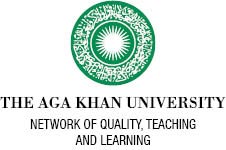The Self-Assessment Report (SAR) is the first step of a programme review. It is the critical self-analysis of a programme or entity based on documented evidence and completed by the programme or entity itself prior to the external peer review. Prior to this, a curriculum review exercise is usually conducted, a report of which will be included in the SAR.
The SAR is an approximately 40-page (plus appendices) holistic report that covers all aspects of the programme and allows the deliverers and organizers of the programme to self-appraise its accomplishments and progress.
There are guidelines that provide for ‘What constitutes a ‘complete self-assessment report’ as required by the university’s Academic Quality Framework. Before the SAR report is forwarded to the Peer Reviewers, the Quality Assurance Review Committee (QARC) members independently review for its completeness, which requires the following elements:
How does it work?
QAI conducts self-assessment training for SAR participants appointed by the Dean. The individuals who undergo the SAR training then carry out the SAR exercise for programme(s) in their entity. The completed SAR is independently reviewed by QARC for its ‘completeness’ and signed-off for the next level, which is the peer/external review process.
Benefits:
Why is self-evaluation important?
The workers within an educational organization should always aim to produce, improve and enhance its quality, rather than passively accepting that everything is fine.
The self-assessment will provide information that was not previously known to all parties and enhance the transparency and accountability of a programme/entity.
The self-assessment involves all members of an organization, including students, in the discussion on the quality of education, and takes their input into account.
A self-assessment serves as a preparation for a site visit by external experts, providing them with basic information.
Participation:
The SAR team is composed of 4-6 faculty members, at least 1 academic staff member and at least 1 student. These individuals are nominated by the Dean and selected by the Provost. The Dean will nominate a faculty member from the group to serve as Chair and to be responsible for the production of the SAR. Normally, the Programme Director/Head of programmes chairs the SAR group. A secretary from within the entity will be assigned to work with the group.
Duration:
An effective self-assessment is time-consuming. It requires effort by staff and students. The approximate duration of a programme SAR is 4-6 months, and a cluster-programme or full entity SAR is 6-8 months.
The following table shows all AKU entities/programmes that have gone through self-assessment training and have completed or are undergoing the SAR exercise:
| School of Nursing and Midwifery, Tanzania | Bachelor of Science (Post-RN BScN) | Complete
|
|---|
| School of Nursing and Midwifery, Kenya | Bachelor of Science (Post-RN BScN) | Complete |
|---|
| School of Nursing and Midwifery, Uganda | Bachelor of Science (Post-RN BScN) | Complete |
|---|
School of Nursing and Midwifery, Pakistan
| Bachelor of Science in Nursing (BScN)
| Complete
|
|---|
| Bachelor of Science (Post-RN BScN) | Complete |
Bachelor of Science in Midwifery Complete (Post-RM BScM)
| Complete
|
| Master of Science in Nursing | Complete |
Medical College, East Africa
| Post Graduate Medical Education- specialty in Obstetrics and Gynecology, AKU Health Sciences | Complete |
| Post Graduate Medical Education-specialty in Pediatrics and Child Health | Complete |
Medical College, Pakistan
| Master of Health Professions Education (MHPE) | Complete |
Master of Science (Health Policy & Management)
| Complete
|
Master of Science (Epidemiology & Biostatistics)
| Complete
|
| Associate of Science in Dental Hygiene (ASDH) | Ongoing |
| Institute for Educational Development, East Africa | Master of Education
| Complete |
Institute for Educational Development, Pakistan
| Master of Education | Complete |
| Master of Philosophy | Complete |
PGME Pakistan
| General Surgery | Ongoing |
Internal Medicine
| Ongoing
|
Orthopedics
| Ongoing
|
Support:
QAI is available to aid the programmes throughout the SAR process through a three-tier support system.
1st tier: Training Sessions
QAI will conduct SAR training for members of the SAR committee
If requested, QAI can provide an additional cell-by-cell training session(s)
QAI will guide the members through the process, address any challenges and answer all questions, and provide examples of other entities that have faced similar challenges
QAI will refer the SAR team to available self-assessment forums/resources both internal and external to the university
2nd tier: Email and Phone Correspondence
Any questions or concerns from the SAR team can be addressed to QAI via email or telephone and will be responded to as soon as possible
QAI will send periodic reminders to the SAR Chair requesting updates on the process and/or inquiring if they require additional aid
Contact faisal.notta@aku.edu for any questions
3rd tier: Additional One-on-one Meetings
Testimonials:
“I personally started to analyze my own teaching/learning practices.”
(SONAM Pakistan, 2015)
“Initially we felt threatened and defensive towards having to participate in the cyclical review process. However, as we went through the self-assessment process, the act of identifying our own issues means we are more likely to make the needed changes for improvement. It was a very useful process!”
(Department Chair Medical College Pakistan Graduate Programmes, 2016)
“[I] have more clarity on how to identify evidences and to develop an improvement plan.”
(IED PK SAR Training, 2018)


QAI Associate Director Faisal Notta conducting SAR training for SONAM Pakistan (2015)


